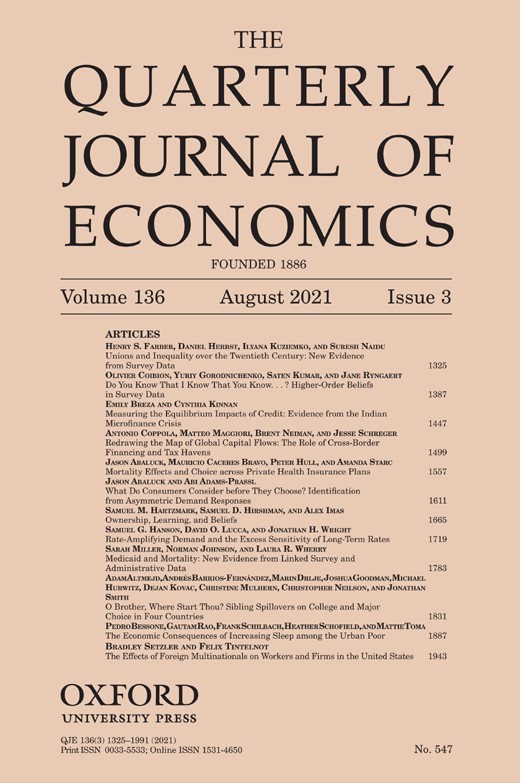
Worker Beliefs about Outside Options
Standard labor market models assume that workers hold accurate beliefs about the external wage distribution, and hence their outside options with other employers. We test this assumption by comparing German workers’ beliefs about outside options with objective benchmarks. First, we find that workers wrongly anchor their beliefs about outside options on their current wage: workers that would experience a 10% wage change if switching to their outside option only expect a 1% change. Second, workers in low-paying firms underestimate wages elsewhere. Third, in response to information about the wages of similar workers, respondents correct their beliefs about their outside options and change their job search and wage negotiation intentions. Finally, we analyze the consequences of anchoring in a simple equilibrium model. In the model, anchored beliefs keep overly pessimistic workers stuck in low-wage jobs, which gives rise to monopsony power and labor market segmentation.





